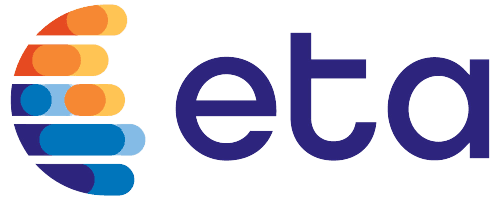Are paper checks becoming a relic of the past in your business? You're not alone. Over 60% of all transactions are now conducted digitally, and that number keeps growing.
As a business owner, if you're looking to keep pace with the shift to online payments, it's time to understand eChecks. In this guide, we'll walk you through everything you need to know about sending eChecks, including:
- What exactly is an eCheck and how does it work?
- A step-by-step breakdown of the eCheck sending process
- Processing times, fees, and security information
- How eChecks stack up against other payment methods
- The key benefits of using eChecks for your business
By the end, you'll be ready to implement eChecks and bring your payment processes into the digital age. Let's dive in.
What is an eCheck?
Short for "electronic check," an eCheck functions as a digital version of a traditional paper check. When you send an eCheck, the money is electronically withdrawn from your checking account, transferred through the Automated Clearing House (ACH) network, such as Zen Payments, and deposited into the recipient's account.
Think of it as a way to harness the power and ubiquity of the internet to send checks without all the manual processing and paper trails of traditional checks. And with over $61.9 trillion in ACH transactions in 2020 alone, eChecks have become a go-to for businesses looking to streamline payments.
Sending eChecks: Step by step
Ready to start sending eChecks? Here's a detailed breakdown of the process from start to finish.
Signing up with an eCheck business
The first step to sending an eCheck is to sign up with an eCheck service provider. Numerous providers are available, including banks, payment processors, and dedicated eCheck services.
When choosing a provider, look for:
- Compatibility with your existing financial software and processes
- Robust security features and compliance with industry standards
- Affordable and transparent fee structures
- Reliable customer support
Once you've selected a provider, you'll need to set up your account. This typically involves providing your business and banking details and may require a verification process to comply with anti-fraud regulations.
Providing payment details
With your eCheck account set up, you're ready to initiate a payment. Just like with a physical check, the information you'll need to provide includes:
- Recipient's name
- Recipient's bank routing number
- Recipient's contact info (such as email address or phone number)
- Payment amount
- Payment description or invoice number
Double-check that all details are correct and that you have sufficient funds before proceeding. Most providers will also display a confirmation screen to verify the payment information.
Authorizing the payment
The final step is to authorize the eCheck payment. This critical security step verifies you have the authority to transfer funds from the linked account.
Authorization methods can vary depending on the provider but often involve one or more of the following:
- Logging into your online banking platform to confirm the payment
- Providing a digital signature
- Entering a secure code sent to your phone or email
Once authorized, the eCheck will enter the processing stage. You'll typically receive a confirmation email for your records, and the payment will appear as "pending" until it clears the ACH network and is deposited into the recipient's account.
eCheck processing: What to expect
After sending an eCheck, you might be wondering what happens next. Let's break down the key aspects of eCheck processing.
Processing times
One of the most common questions about eChecks is: How long do they take to process? The answer can vary, but most eChecks are processed within 3-5 business days.
Several factors can impact processing times:
- The time of day the eCheck is initiated (cut-off times may apply, depending on the financial institution)
- Whether any information is flagged for additional verification
- If the payment is sent before weekends or holidays
It's important to note that, unlike some digital payment methods, eChecks do not process instantly. The ACH network operates on a batch processing system, meaning payments are collected and processed together at designated times rather than individually in real time.
eCheck fees
Compared to other payment methods, eChecks tend to have lower processing fees. Exact costs vary between providers but average around $0.30-$1.50 per transaction. This is often lower than credit card processing fees, which can range from 1.5%-3.5% of the total transaction amount.
Some providers charge additional fees for insufficient funds or returned checks, so be sure to review your provider's complete fee schedule before signing up
Security measures
Security is a top priority when it comes to online financial transactions. Echecks come with several built-in security features:
- Encryption: Echeck data is encrypted during transmission to prevent interception
- Authentication: Payers must verify their identity and authority to complete the transaction
- Duplicate detection: The ACH network checks for duplicate payments to prevent accidental double-charging
Additionally, eCheck providers are required to comply with strict industry regulations, including the National Automated Clearing House Association (NACHA) operating rules and the Federal Reserve's Regulation E.
How eChecks compare to other payment methods
eChecks are just one of many payment methods businesses can use. Let's see how they stack up against some of the most common alternatives.
eChecks vs. ACH payments
ACH (Automated Clearing House) payments are electronic payments processed through the same network as eChecks. In fact, eChecks are a type of ACH payment. The main difference is that eChecks are designed to mirror the function of paper checks, while ACH payments encompass a broader category of electronic bank-to-bank transfers.
eChecks vs. EFT payments
EFT (Electronic Funds Transfer) is a broad term that includes many types of electronic payments, including eChecks, ACH payments, wire transfers, and direct deposits. The main distinction is that not all EFTs use the ACH network - some, like wire transfers, go directly from one bank to another.
eChecks vs. wire transfers
Wire transfers electronically move funds from one bank account to another, typically processed directly through the banks involved. They can be faster than eChecks since they don't go through the ACH network, often arriving the same day. However, wire transfers usually have higher fees than eChecks and may require more manual processing.
eChecks vs. debit/credit card payments
Credit and debit card payments are processed through card networks rather than the ACH system. They offer instant authorization, which can make them faster than eChecks. However, card payments typically have higher processing fees than eChecks (often a percentage of the transaction amount). They also have different chargeback and dispute processes compared to eChecks.
The business benefits of eChecks
eChecks offer several compelling advantages for businesses looking to optimize their payment processes.
Cost savings
One of the most significant benefits of eChecks is their cost-effectiveness. With lower processing fees than credit cards and some other electronic payment methods, eChecks can help businesses reduce their overall transaction costs and improve cash flow. This can add up to substantial savings over time, especially for businesses with high transaction volumes.
Convenience for recurring payments
eChecks are an excellent option for businesses that handle recurring payments, such as subscriptions or regular billing. Customers can authorize recurring eChecks, allowing businesses to automatically debit the appropriate amount on a set schedule. This eliminates the need for manual invoicing and reduces the risk of late or missed payments.
Expanded payment options
By offering eChecks as a payment method, businesses can cater to a wider range of customer preferences. Some customers may prefer the familiarity and security of paying by check but appreciate the speed and convenience of doing so electronically. Providing a variety of payment options can help businesses attract and retain more customers.
Streamlined accounting
Echecks can simplify accounting processes by providing a clear digital record of all transactions. This can reduce the time and effort required for manual bookkeeping and reconciliation. Additionally, many eCheck providers offer integration with popular accounting software, further streamlining financial management.
Implementing eChecks in your business
If you're ready to accept eChecks, here's what you need to know.
Setting up a merchant account
To process eChecks, you'll need a merchant account with an eCheck provider or a bank that offers eCheck services. When applying for a merchant account, you'll typically need to provide:
- Business information (name, address, tax ID)
- Bank account details for deposits
- Estimated processing volume
The provider will review your application and may request additional documentation before approving your account.
Integrating eChecks into your payment processes
Once your merchant account is set up, you can begin integrating eChecks into your payment workflows. This typically involves:
1. Adding eCheck as a payment option on your website, invoices, or payment forms
2. Configuring your payment gateway to process eChecks
3. Training your staff on eCheck acceptance and processing procedures
Many eCheck providers offer APIs, plugins, or pre-built integrations to simplify the setup process. Be sure to follow your provider's integration guidelines and test thoroughly before launching eChecks to customers.
Best practices for accepting eChecks
To ensure a smooth experience for your business and your customers, follow these best practices:
- Clearly communicate your eCheck acceptance policies and procedures
- Obtain proper authorization from customers before initiating eCheck transactions
- Securely store and protect sensitive customer data
- Monitor transactions for any suspicious activity or errors
- Promptly address any customer concerns or disputes
Embracing the future of payments
As the world continues to go digital, electronic checks offer businesses a secure, efficient, and cost-effective way to modernize their payment processes, especially for high-risk transactions. By understanding how eChecks work and implementing them effectively, businesses can reap significant benefits - from reduced costs to improved customer satisfaction.
While eChecks may not be the right fit for every business, their versatility and lower transaction fees make them a compelling option for many. As more businesses adopt eCheck technology and more customers become comfortable with digital payments, the role of eChecks in the financial landscape is only set to grow.
If you're not already using eChecks in your business, now is the time to explore this powerful payment tool. With the right provider and a well-planned implementation strategy, you can harness the speed, security, and savings of eChecks to drive your business forward.






